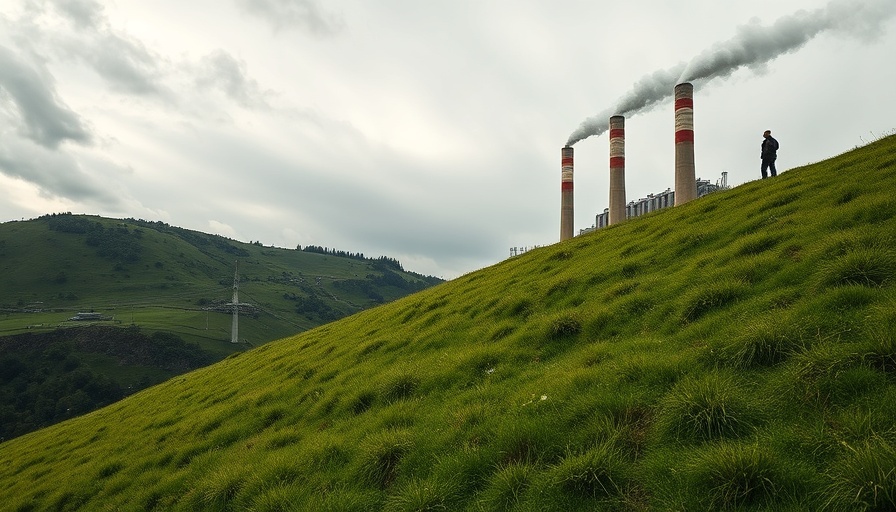
Indonesia's Bold Move in Coal Energy Amid Regional Changes
Indonesia, a leading figure in Southeast Asia's energy landscape, has recently made headlines by proposing new coal plants in 2024. This move sets the country apart from its regional neighbors, most of whom have stalled coal projects and are shifting toward renewable energy solutions. According to a report by Global Energy Monitor (GEM), all 160 proposed coal plants in Indonesia are intended for “captive use”, primarily tied to industrial facilities like nickel smelters, marking a significant moment in the nation’s energy strategy.
Understanding Captive Coal Capacity
Captive coal refers to power generated exclusively for use within a business or industrial site, rather than fed into the broader power grid. This dynamic has allowed Indonesia to triple its captive coal capacity since 2019, reaching an impressive “16.6 gigawatts (GW)” in 2024. A large portion of this capacity supports nickel processing, a key component in manufacturing electric vehicle batteries. Thus, while the country is investing in coal, this approach is tied to emerging technologies that are crucial to the global shift toward electric mobility.
Coal and the Industrial Sector
The industrial sector is now responsible for nearly half of Indonesia's energy consumption, driven by policies that prioritize industrial parks and strategic projects. This situation poses a unique tension: on one hand, Indonesia seeks to support its burgeoning nickel industry; on the other, it is criticized for perpetuating coal dependency amid the urgent need for sustainable energy solutions. As the demand for long-term energy reliability in metal processing grows, critics argue that the justification for coal use through so-called “transition finance” cannot obscure its environmental impact.
Market Forces and Financial Dynamics
Recent reports from campaigns such as Market Forces highlight how large banks continue financing coal projects despite pledges to reduce coal investments. For instance, Singapore’s major banks have faced scrutiny for funding Indonesia’s Harita Group coal-powered nickel smelters. This financing conflicts with global environmental commitments and raises questions about the integrity of public climate initiatives.
Regional Context and the Greater Southeast Asia Energy Landscape
While Indonesia is forging ahead with these coal projects, the rest of Southeast Asia has seen a decline in coal development. From 2016 to now, projects have stalled, and the emphasis has shifted towards renewable energy alternatives. Countries like Vietnam and Thailand are exploring solar and wind technologies as part of their energy mix, suggesting a regional pivot toward sustainability. This stark contrast invites a crucial discussion about the future of energy policy in the region.
The Implications of Indonesia's Coal Strategy
Indonesia’s strategy could serve as a significant case study in balancing industrial growth with sustainable practices. As environmental concerns escalate, will this path prove economically sustainable or risk alienating environmental partners? The priorities laid out in Indonesia's national electricity master plan indicate that over “75 percent” of new power capacity will be coal-based—reflecting a commitment to traditional energy sources but also a reluctance to fully transition to renewables.
What Does This Mean for the Future?
As the world increasingly recognizes the urgency of climate action, Indonesia’s coal proposals compel a larger conversation about energy transitions globally. How much longer will coal remain a favored energy source? With rising emphasis on sustainability and environmental impact, countries will need to rethink the role of coal within their energy strategies genuinely. The move toward a zero-waste, eco-friendly paradigm can be likened to a race against time—one that Indonesia must navigate carefully.
Call to Action: Be Part of the Solution
As individuals, we can harness our purchasing power and influence by choosing eco-friendly products and supporting sustainable initiatives. The future of energy is not solely in the hands of policymakers; it also lies within our daily decisions. Engage in sustainable living practices, advocate for renewable energy, and stay informed on how to make a difference in your community today.
 Add Row
Add Row  Add
Add 



Write A Comment